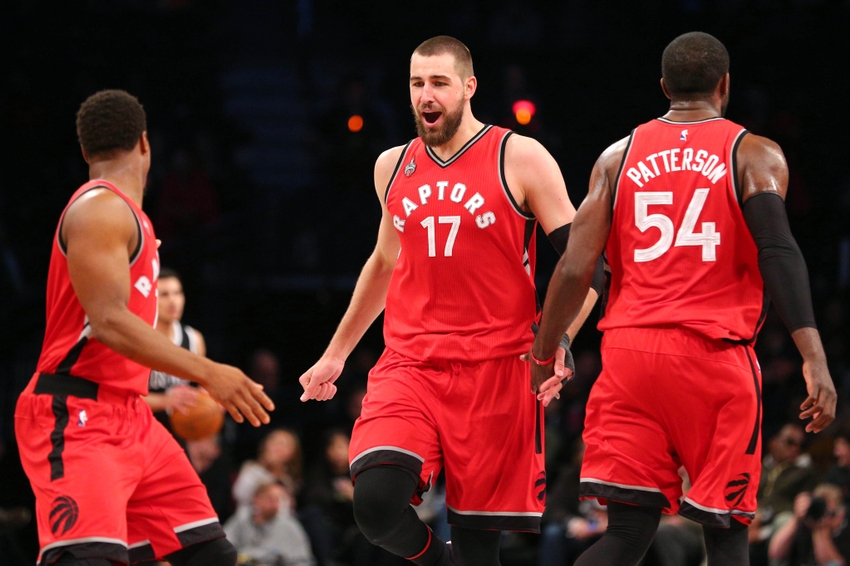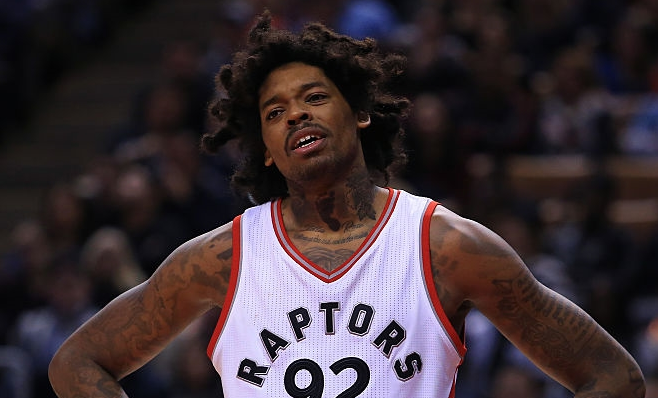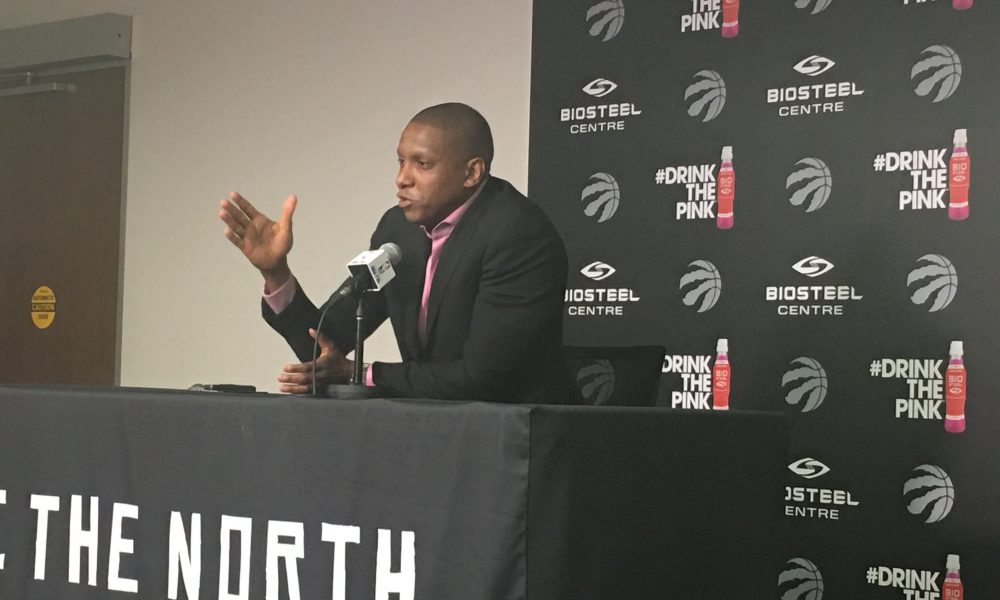When the season inevitably ends for any team, the first task of the fans is looking for a place to lay blame that the team didn’t go farther. Losing to the defending champions is nothing to be ashamed of, but not making it a competitive series, especially when this was billed as a Raptors team built to contend, means that something must’ve gone wrong somewhere along the way. There is plenty to go around, but the target seems to have settled on the supporting cast, after they failed to provide any secondary offense for the team, especially after Kyle Lowry missed the last two games of the series with an ankle injury.
With DeMarre Carroll(1/5), Patrick Patterson(2/9), and Norman Powell(5/23) all having struggled from three point range in the series against Cleveland, the common refrain is that the Raptors need to find more three-point shooting before the next offseason, should they decide to run it back with this core. As well, Patterson and Carroll weren’t up to the task defensively, as the Cleveland bench routinely outplayed Toronto’s. This is all definitely true, and yet feels a familiar talking point.
The truth of the matter is, for this four-year stretch of the Raptors making the playoffs, this has been an issue all along. Whether we’re talking about Terrence Ross struggling to find his shot, John Salmons, Lou Williams, and Luis Scola going ice cold, or Jonas Valanciunas getting played off the floor on defense, there is always a case for the role players underperforming. Most of them are accurate too, it’s not unfair to say that these guys have struggled, but there might be a case that if the role players always struggle, regardless of which particular group we’re talking about, that the problem isn’t necessarily those players, but a system that fails to put them in a position to succeed.
During the Cavaliers series, Cleveland made 61 three-pointers to the Raptors’ 27, which tied for the largest margin between two teams in a 4-game series, and with the nature of DeMar DeRozan’s game, it certainly isn’t on him to help correct that gap, so the guys around the two All-Stars weren’t at their best. At the same time, the Raptors might need to acknowledge that the way they create shots for their role players is, at the end of the day, fundamentally different from the way Cleveland was doing it in that series. Nearly every Raptors possession begins with trying to create a shot for the ball handler, whether that’s DeRozan, Lowry, Cory Joseph, Delon Wright or Norman Powell. Only after the defense resists that initial push, and sometimes additional probes, does the secondary action which results in those three-point shots that didn’t fall come. For Cleveland, on the other hand, they begin possessions setting out to create shots for those guys, whether it’s Kyle Korver, JR Smith, or Channing Frye, who were among those to do the most damage from beyond the arc.
It could be that the Raptors role players keep coincidentally collapsing when the playoffs come around, and the team has just failed to put the right supporting cast around DeMar and Kyle. It would be hard to prove otherwise if you decided that was the cause of the playoff issues that keep cropping up, but given the cost of bringing back the same core this summer and the difficulty of adjusting the surrounding cast because of that, given that there simply is no cap space to work with. Getting all new shooters to replace the ones Toronto currently has may simply not be in play, and how could you be confidant that those shooters wouldn’t simply run into the same problems come the postseason, given that the guys who’ve struggled in the past all performed fine in the regular season from long distance?
There are inherent risks no matter which way the Raptors decide to go this summer, and definitely a case to be made that changing the pieces around DeRozan and Lowry might bring better success. But there is also a history of those pieces changing without bringing new results, and that’s getting harder and harder to ignore. Maybe the core itself is flawed, and the inability to get the best out of their role players in the biggest moment is that flaw.



